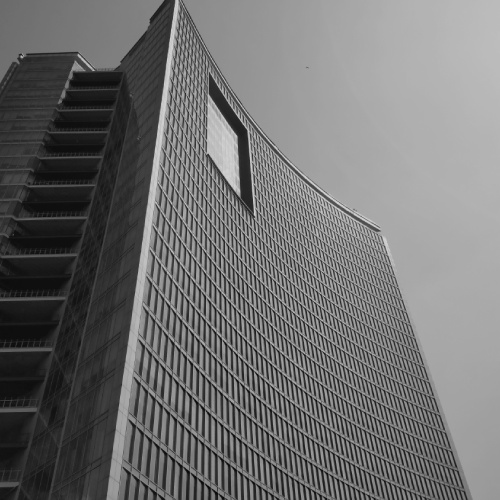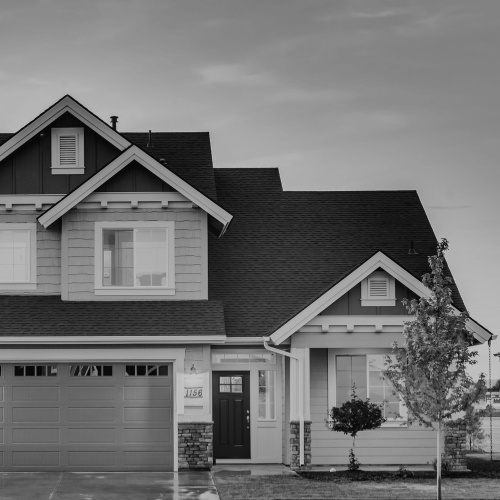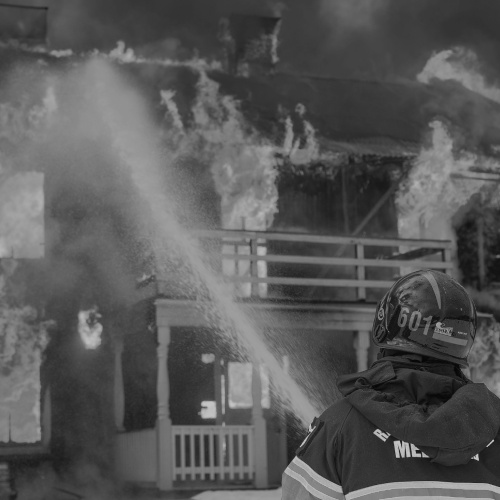A construction site is susceptible to all sorts of accidents.
Losses can mount from pilferage, theft, damage, legal claims and more. This policy provides
coverage for
property damage and third-party injury or damage claims, the two primary types of risks on
construction projects.
Damage to property can include improper construction of structures, damage that happens
during a renovation, damage
to temporary work erected on-site and physical loss or damage to the contract works,
construction plant & equipment or
machinery. CAR insurance coverage is common for such construction projects as buildings,
water tanks,
sewage treatment plans, flyovers and airports.
Typically, both contractor and employer jointly take out CAR insurance policies, with other
parties such as financing companies having the option of being named to the policy. Because
multiple
parties are included in the policy, each can retain the right to file a claim against the
insurer, although
all parties have the duty
of informing the insurer of any injuries and damages that may result in a claim.
Risks often covered under a CAR policy include Fire perils, flood, earthquakes,
water damage and mold,
construction faults and negligence. They typically do not cover normal wear
and tear, willful negligence or poor workmanship.
- Additional custom duty
- Air freight
- Damage to surrounding property
- Debris removal
- Escalation
- Loss due to breakage of glass
- Maintenance visits
- Provision for escalation
- Terrorism
- Architect and Surveyor Fees
- Third-party liability
Insured’s legal liability for compensation in respect of personal injury
or property
damage to third parties arising from the contract works is covered
A maintenance period is usually incorporated in most CAR policies and it
is normal for the policy
to cover this period in addition to the period of construction. The maintenance cover is for
loss or
damage to the works occurring during the maintenance period stipulated
in the provisions of the maintenance clauses in the contract relating to the works.
The cover begins from the start except for items of Construction Plant and the like.
These are generally covered only after they have been unloaded at the site. The cover
terminates when the completed project
is handed over or any completed part is taken over or put into service.
Insurance provides cover to Contractors Plant and Machinery against
unforeseen and
sudden physical damage whether at work or rest, while being dismantled or in the course of
such operations or while being shifted,
re-erected while such items are at the erection site. The policy is restricted to particular
location
- Overturning in rugged and unfamiliar terrain
- Boom collapse of cranes due to lifting problems or mechanical failure
- Exposure to the natural elements
Sum insured should always be equal to the cost of replacement of insured’s machinery by
new machinery at same time and same place.
- Express freight (air freight excluded), holiday and overtime rates of wages
- Air freight
- Owner’s surrounding property
- Third-party liability
- Removal of debris.
- Customs duty
EAR policies are designed to cover the risk of loss arising out of the
erection and installation of machinery,
plant and steel structures, including physical damage to the contract works, equipment and
machinery,
and liability for third-party bodily injury (BI) or property damage (PD) arising out of
these operations.
Examples of the types of projects for which EAR coverage is typically purchased include
power plants,
manufacturing and fabrication facilities, water and wastewater treatment facilities, and
telecommunications centers
(particularly where the erection of signal towers is involved). Some insurers combine EAR
and contractors all risks (CAR)
coverages into one form.
Although these terms are sometimes used interchangeably, there are some substantive
differences.
- Fire, explosion, lightning, aircraft damage
- Earthquake, Flood, storm, cyclone, landslide and allied perils
- Riot, strike, malicious act
- Faults in erections
- Faulty workmanship,
- Negligence, lack of skill, lack of experience
- Excess pressure or vacuum, destruction due to centrifugal force
- Burglary and theft
- Human errors, act of negligence
- Electrical and mechanical breakdown
- Short circuiting, arcing, excess voltage
- Collapse, damage due to foreign objects, impact damages
- Any other sudden, unforeseen, accidental damages not explicitly excluded
- Removal of Debris
- Surrounding property
- Errors and Omissions
- Loss minimization expenses
- Professional Fees
- Automatic Reinstatement of Sum Insured
- Expediting Expenses
- Prevention of Access
- Offsite storage and fabrication
- Removal to place of safety
- Time Adjustment (72 Hours clause)
- Waiver of subrogation
- Free issue materials
- Extended Maintenance etc.
With high value projects, the critical equipment being imported may
face delays in the cargo reaching its destination or damage caused to it during transport,
which could have a significant impact to a project’s timeline and impact the bottom line.
Transit of very large/heavy equipments such as blades for wind turbines, equipments for
power station, material for buildings are prone to such risks.
Given the complexity of international transport and logistics,
transporting such equipments is complex as these items can have unusual symptoms of priority
and they may also require assembly or disassembly, loading and unloading and storage during
the transit, all of which lead to increased risks.
- Financial protection against the loss or damage sustained to project equipment
while in transit, including:
- Physical damage or total loss of goods during transit (based on All Risk)
- Delay in Startup (DSU)
- Advanced Loss of Profits (ALOP)
The insurance coverage for DSU / ALOP requires that the cause of the damage to cargo
corresponds to the Ocean Cargo Insurance.
This is an ideal cover for all kinds of plant and machinery, to cover
cost of repairs or
replacement of damaged parts as a result of unforeseen and sudden physical damages.
The cover protects the insured’s machinery whilst at work, or while
idling and also when they are being dismantled for
the purpose of cleaning, inspection and overhauling or removal to another position or in the
course of their operations or subsequent re‐erection,
provided these are performed in the same premises.
- Unforeseen and sudden physical damage to the insured’s machinery
- The MBD insurance also covers loss or damage due to fire in insured’s electrical
machineries originating from within such insured machinery and resultant fire damage
to such machinery only. The Standard Fire & Special Perils Policy specifically
excludes this risk.
- For loss or damage occasioned by spread of fire, so originated within electrical
machinery, to surrounding property, cover is available by Standard Fire and Special
Perils Policy.
- Short circuiting, excess voltage & electrical arcing
- Faulty design, faulty material and faulty casting (manifesting after warranty
period)
- Abnormal operating conditions
- Carelessness and lack of skill in the operation and maintenance of machinery
- Entry of foreign bodies
- Falling, Impact, Collision etc
- Bursting or disruption of turbines, compressors, cylinders of steam engines,
hydraulic cylinders or fly wheels or other apparatus subject to centrifugal force,
internal pressure.
Advance loss of profit (ALOP) insurance provides coverage for financial
losses due to delays in construction and infrastructure projects. ALOP will also provide a
payout if companies face higher costs or lost profits when a project takes longer than
expected to complete. ALOP is also called delayed completion coverage or delay in start-up
(DSU) insurance.
Large construction projects purchase advance loss of profit insurance
because they face a number of risks that could result in delayed project completion. A harsh
winter, for example, may delay the start of a project and, thus, the completion date, or
maybe the construction site soil is more unstable than engineers originally estimated. The
possible causes for delays are numerous and often unexpected.
Such delays can severely impact the finances of companies relying on a
construction project’s timely completion. In addition, companies that use debt financing may
find it difficult to repay debts incurred for renting or purchasing construction equipment.
Delays to some projects, such as harbors, airports, bridges, and tunnels, may negatively
impact many companies over a wide geographic area.
Investors in the project may purchase ALOP insurance to cover the cost of not being able to
earn rents from building tenants. Building contractors may purchase the insurance to cover
the cost of having to rent construction equipment and pay employees for longer than
expected. Companies which are renting out equipment used in the construction may also use
the insurance to cover the costs of not being able to rent the equipment for other projects.
- Loss of gross profits – is based on anticipated sales, cost and prices.
- Loss of gross earnings- is calculated as the sales value of production less
consumed stocks, supplies and services purchased.
- Increased cost of working – includes costs involved in minimizing the effects of
the delay.
- Principal and interests – provides for lending institutions’ interest in the
portion of gross profit.
- Loss of rent – as a result of premises not being ready to earn rent.
- Special expenses – includes costs involved because of delay such as advertisement
campaign etc.


